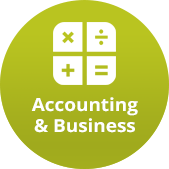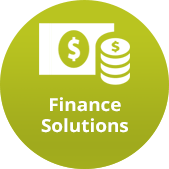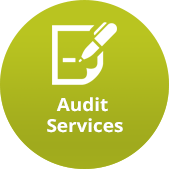June 2016 Edition
In this edition:

Preparing for the end of the financial year - 30 June
Important information for taxpayers
With 30th June fast approaching there are many ways in which entities can defer income, maximise deductions and take advantage of other tax planning initiatives to manage their taxable incomes. Taxpayers should be aware that in order to maximise these opportunities, they need to start the year-end tax planning process early. Of course, those undertaking tax planning should be aware of the potential application of anti-avoidance provisions. However, if done correctly, tax planning can provide a number of tax savings for entities.
Below we look at some of the tax planning opportunities for businesses as well as provide a checklist for our business and SMSF clients to consider before 30 June comes around.
Business taxpayers
- Taxpayers should review all outstanding debts before year-end to identify any debtors who may be unable to pay their bills. Once a taxpayer has done everything in their power to seek repayment of the debt, they may consider writing off the balance as bad debt.
- Unlike other creditor payments of superannuation on behalf of employees are only deductible when paid. So even though your SGC liability is not due until after the year end it is worthwhile to pay this before the year end in order to bring forward the deduction to the current year.
- A deduction may be available on the disposal of a depreciating asset if a taxpayer stops using it and expects never to use it again. Therefore, asset registers may need to be reviewed for any assets that fit this category. Small business entities are entitled to an outright deduction for the taxable purpose proportion of the adjustable value of a depreciating asset, subject to conditions.
- Bring Forward Expenses: purchase consumable items BEFORE 30 June 2016. These include stationery, printing, office and computer supplies.
- Ensure that you have kept an accurate and complete Motor Vehicle Log Book for at least a 12-week period. The start date for the 12-week period must be on or before 30 June 2016. You should make a record of your odometer reading as at 30 June 2016, and keep all receipts/invoices for motor vehicle expenses. Should the nature of the travel, vehicle or business use % have not changed you can use the log book for a 5 year period.
- Prepayments: Small Business taxpayers (turnover <$2m) can make prepayments (up to 12 months) on expenses (e.g. loan interest, rent, subscriptions) BEFORE 30 June 2016 and obtain a full tax deduction in the 2016 financial year.
Individual taxpayers
- Non-business taxpayers are entitled to an immediate deduction for assets that are used predominantly to produce assessable income and that cost $300 or less, subject to conditions.
- Self-employed and other eligible people are entitled to a deduction for personal superannuation contributions, subject to meeting conditions such as the "10% rule".
- Ensure all your receipts are kept for work related deductions. For deduction lists specific to your occupation visit the following ATO website.
Considerations for SMSF Trustees
- Valuations: The assets in your SMSF must be valued each financial year based on objective and supportive data.
- Contributions: Ensure contributions are received on or before 30 June, especially if made by electronic funds transfer. A day too late could cause problems. Check with your GCC team member regarding important BUDGET changes.
- Tax deduction on your personal contributions: If you are eligible to claim a tax deduction then you will need to lodge a 'Notice of intention to claim a tax deduction' with your SMSF trustee before you lodge your personal income tax return. Your SMSF trustee must also provide you with an acknowledgement of your intention to claim the deduction.
- Spouse contributions: Spouse contributions must be received on or before 30 June in order for you to claim a tax offset on your contributions. The maximum tax offset claimable is 18% of non-concessional contributions of up to $3,000. Your spouse's income must be $10,800 or less in a financial year. The tax offset decreases as your spouse's income exceeds $10,800 and cuts off when their income is $13,800 or more.
- Minimum pension payment: Ensure that the minimum pension amount is paid by your SMSF by 30 June 2015 in order to receive the tax exemption. If you are accessing a pension under the 'Transition to Retirement', then ensure you do not exceed the maximum limit also.
Trust considerations
- Taxpayers should review trust deeds to determine how trust income is defined. This may have an impact on the trustee's tax planning.
- Trustees should consider whether a family trust election (FTE) is required to ensure that any losses or bad debts incurred by the trust will be deductible and to ensure that franking credits will be available to beneficiaries.
- Taxpayers should avoid retaining income in a trust because it may be taxed in the hands of the trustee at the top marginal tax rate. To avoid this, trustees should ensure that effective trust resolutions are made before 30 June to distribute the income of the trust.
Please contact your GCC team member if you have any queries or to assist you in planning for 30 June.
Contact details
Suite 401 29-31 Solent Circuit
Norwest Business Park
Baulkham Hills, NSW 2153 Australia
View location map
P:
(02) 9899 3044
F: (02) 9899 1524
About Us
Our Team Members are the heart and soul of our business. Our team's guiding principles are integrity, respect, teamwork, achievement and innovation. Our guiding principles are the keys to our culture and to achieving our vision.
Resources
We offer a range of free and easy to use
online resources and tools including...











